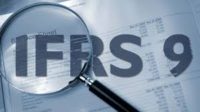
The International Financial Reporting Standards (IFRS) 9 on Financial Instruments came into effect on 1st January 2018. The standard includes requirements for recognition and measurement, impairment, derecognition and general hedge accounting.
IFRS 9 establishes a new approach for loans and receivables, including trade receivables – an “expected loss” model that focuses on the risk that a loan will default rather than whether a loss has been incurred. Entities will have to start providing for possible future credit losses in the very first reporting period a loan goes on the books. The new model brings about the added threat of volatility in profit and loss. The IFRS 9 applies to lease receivables and as such lessors must take note of this development.
For the banks, the CBN has given them some reliefs by extending the time to four years in which banks are to absorb the impairments thereby easing fears that an immediate transition would have severe repercussions for banks’ capital adequacy ratios.
For more information kindly visit: https://eyfinancialservicesthoughtgallery.ie/wp-content/uploads/2018/10/75407_FS_Marketing_Event_FS-Summit-event_thoughtleadership-WEB.pdf,
https://www.pwc.com/gx/en/audit-services/ifrs/publications/ifrs-9/ifrs-9-understanding-the-basics.pdf
